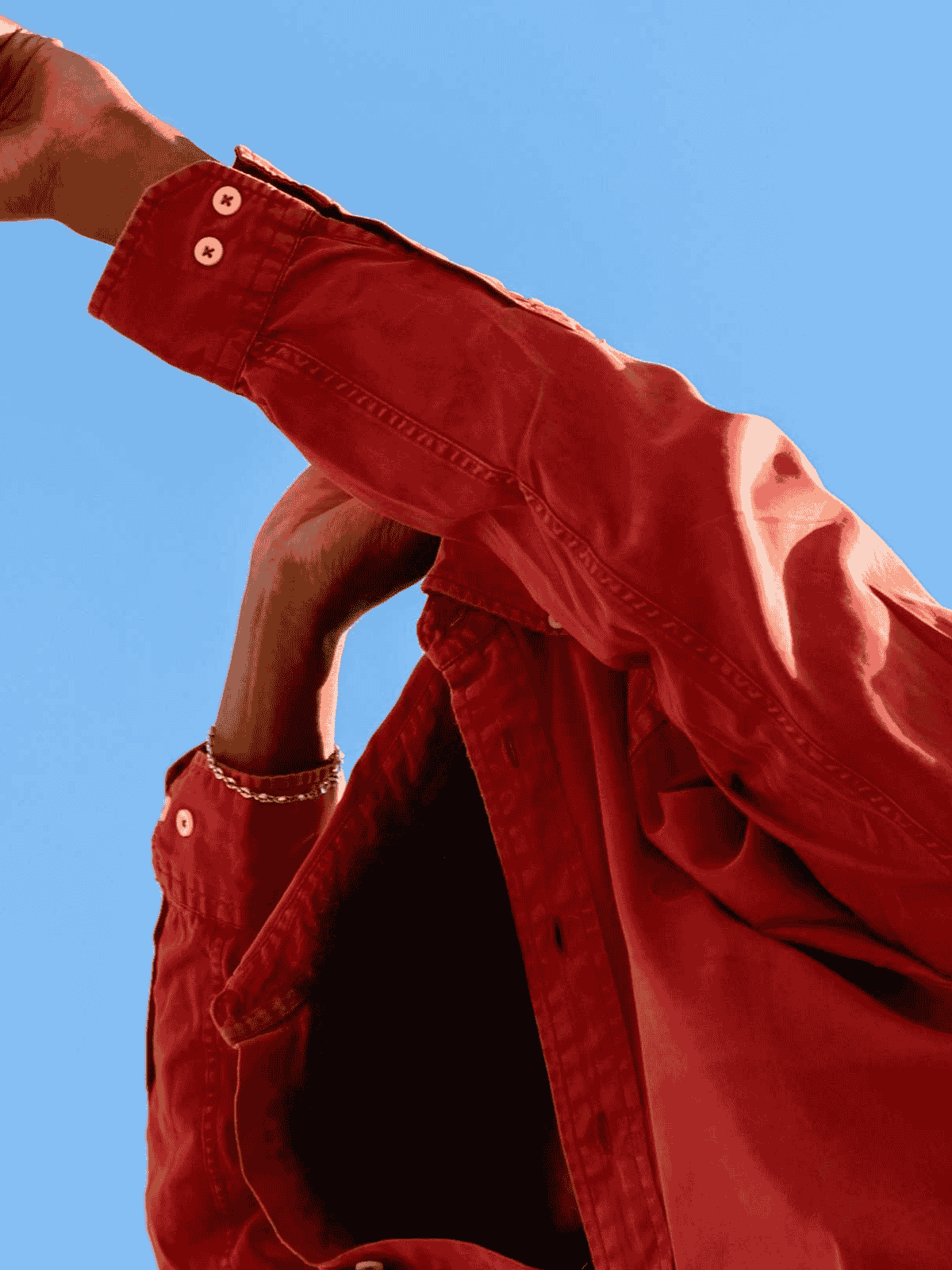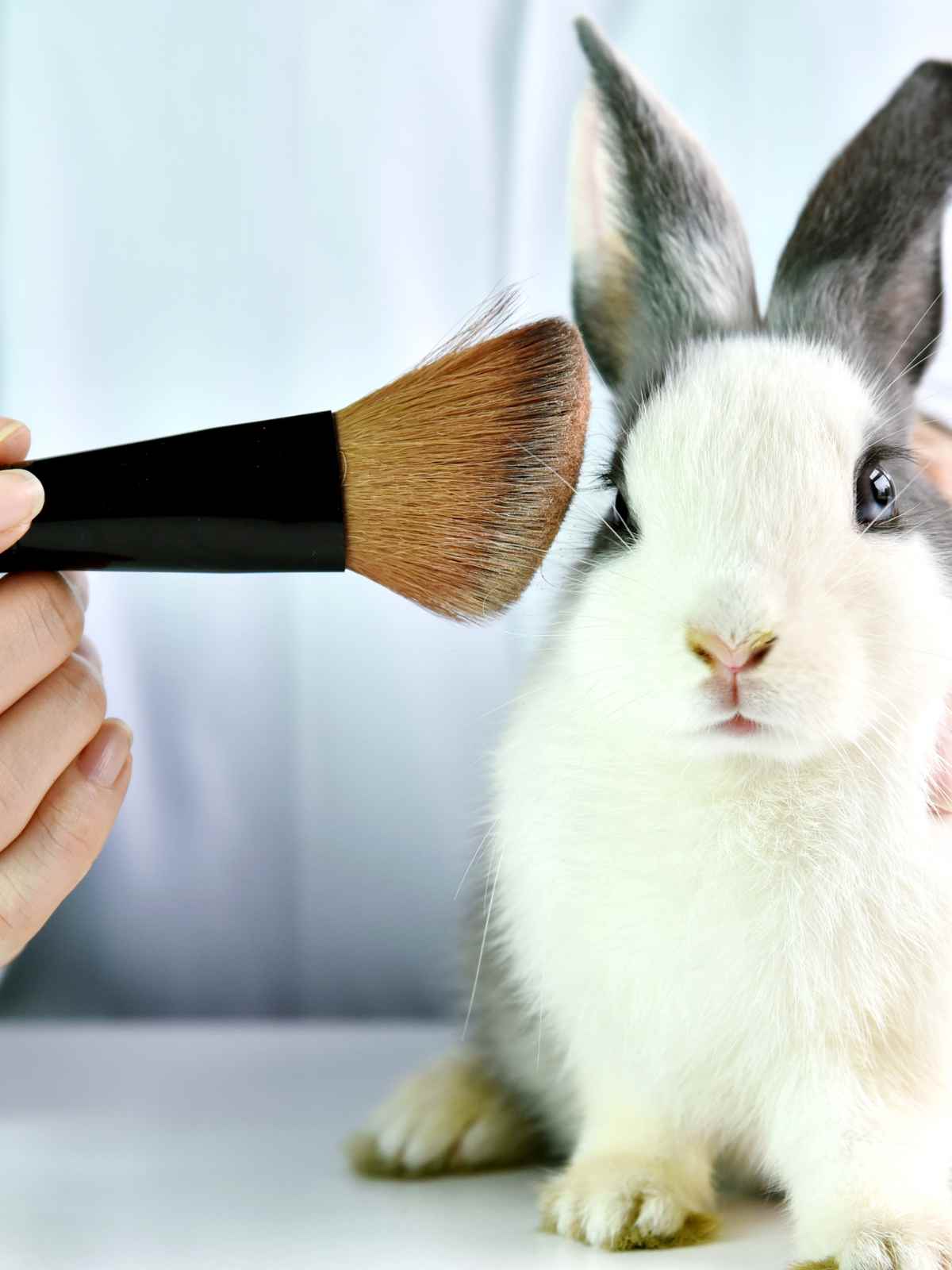As political extremism reshapes the global landscape, fashion brands are quietly retreating from public commitments to sustainability and diversity. This pivot isn’t only about ethics—it’s also shortsighted business that risks long-term brand value for questionable short-term gains.
The view from United States in 2016 v 2025
“Can someone just be blunt and name their collection ‘F**k Fascism’ or something?” was a question posed by sustainable fashion platform Sustainable Baddie during the latest New York Fashion Week. They were tired, they said, of reading between the lines to try and find some kind of anti-fascist sentiment from brands and designers in response to Donald Trump’s second term.
If we rewind to 2016, when Trump was first elected, the industry’s response was comparatively robust and direct than we see now. Casting directors were ordered not to book talent via Trump Models (yes, he had a model agency), retailers including TJ Maxx, Neiman Marcus, and Nordstrom pulled daughter Ivanka Trump’s products from sale, and designers including Sophie Thaellet, Opening Ceremony’s Humberto Leon, Tom Ford, and Marc Jacobs publicly stated they refused to dress the First Lady, Melania.
They had good reason to. Consumers burned, binned, and returned their New Balance sneakers after the company’s then-vice president, Matt LeBretton, made a pro-Trump comment in late 2016, and when Ralph Lauren dressed Melania for the inauguration in January 2017, the hashtag #BoycottRalphLauren started trending almost immediately. According to campaign group Grab Your Wallet, which called for a boycott of Trump-related brands and products, more than 70 companies severed ties with the Trump brand at the time. Save a few outliers, it seemed as though the wider fashion industry was keen to denounce Trump and his far-right politics, lest they be lumped in with him.
Jump to the 2025 inauguration for Trump’s second term and eagle-eyed viewers were quick to spot that Bernard Arnault—founder and CEO of luxury group LVMH, which owns brands such as Louis Vuitton and Fendi—was in attendance, along with family members including daughter Delphine who is CEO of Christian Dior, another LVMH brand. Arnault had previously welcomed Trump to a Louis Vuitton factory in Texas in 2019, the luxury mogul savvily stating he was not there to judge Trump’s policies. But Arnault’s presence at the inauguration, his commendation of Trump’s intentions to slash bureaucracy, and his note of the president’s “incredible majority”, felt like more of an explicit show of political support this time round.
LVMH isn’t alone in normalising acceptance of, or support for, the Trump administration. Vice President JD Vance, his wife Usha, and Ivanka Trump have all been proudly showcased on Oscar de la Renta’s Instagram page, while Kim Kardashian posted her admiration for Ivanka just days ahead of the election, and then shared a photo of Melania at the inauguration, apparently unconcerned that it could negatively impact her brand SKIMS.
“They were wolves in sheep’s clothing and now they feel comfortable being wolves,” says Jazmine Brown, content creator and Sustainable Baddie’s founder.
It’s evidence that what was once considered reputational self-destruction has now entered the realm of acceptability. Like fabrics or silhouettes, ideologies go in and out of style, and right now, brands are jumping on the short-term wins to be had from embracing a new and extreme political landscape. But they’re ignoring major long-term reputational and financial risks in the process.
Does fashion have no backbone?
“Brands flip-flop. Once they might have been super heavy on DEI [diversity, equity, and inclusion] and now they’re Trump-heavy. They’ve done their cost-benefit analysis [and think they can] make more money if they align themselves with a fascist president,” says Brown.
There’s undoubtedly an element of certain brands simply moving with the prevailing winds to protect their own interests, happily overlooking Trump’s threats to climate, trans rights, people of colour, Indigenous communities, immigrants, and other marginalised groups and existential issues. For instance, many industry commentators have speculated that Arnault is cosying up to Trump to avoid the seemingly endless onslaught of tariffs the president is set to apply, which will make doing business across multiple sectors more expensive.
The risk of fashion alienating its typically progressive, left-leaning inner community is present, however with that “incredible majority” in mind, fickle marketers may see an opportunity to lure emboldened former outsiders ready and waiting for a brand to say it stands with them, or at the very least that it doesn’t reject them and their figurehead (see: MAGA supporters flocking to buy Teslas after liberals ditched them; but also see: Tesla stocks tanking). And let’s not forget, there’s a huge, agnostic middle who will shop regardless of statements or alignments. Clearly, some brands find the prospect of maximising their audience—whoever the audience may be—to be a tempting proposition for their bottom line.
Compounding what feels like a tacit acceptance of fascism is that it’s happening in an era where fashion brands are making a strategic choice to stay quiet across the board, hence a much more muted response compared to 2017.
After a few years of big, bold claims from fashion about social and environmental improvements, alignment with activist movements, and announcements of impressive-sounding targets for change, brands found themselves being accused of greenwashing, pinkwashing, even “mom-washing” as their claims didn’t meet with reality. An industry-wide “hushing” has ensued, intensified by the sheer turnover of industrial and geopolitical scandals and abuses to speak out on. A constant churn of tangential statements just doesn’t play as authentic.
Compounding what feels like a tacit acceptance of fascism is that it’s happening in an era where fashion brands are making a strategic choice to stay quiet across the board.
“Generally, politics has moved at a certain speed and pace: you’ll have an issue that’s in the conversation, and the people that care about it will want to address that. Today it’s quite different. Everything is moving so fast, and you have this deluge of changes happening without time for a broad national or global conversation. That’s added pressure on companies who are struggling to figure out where to show up and where to speak,” says Eric Raymond, co-founder of brand advocacy and business strategy agency, Big Future.
Consumers are tired—but they’re still paying attention
Brands are wary of speaking out, and consumers are tired of hearing it when it’s not coupled with concrete action. “It’s a mixture of [general] fatigue and fatigue with empty gestures,” says Brown. Would a mere anti-Trump press statement or an Instagram post really cut it in 2025? It’s unlikely.
That’s not to say, however, that consumers no longer hold expectations for brands to lead the way. The likes of Target, Amazon, and Nestlé have been subject to consumer boycotts for rolling back internal DEI measures per the Trump administration’s regressive policy changes. Meanwhile, an “economic blackout” designed to snub major retailers and support small brands showed how a significant consumer (or perhaps citizen, to be more accurate) base is joining the dots between corporate interests, power, and politics, and seeking to check out of the whole consumption-based system.
Where today’s consumers are particularly tuned in to the intersection between brands and politics is when there is close proximity between founder (or figurehead) and brand, because that’s where it gets personal. “If you look at Elon Musk [who has taken a position in Trump’s administration] and Tesla [Musk’s brand] is all about accelerating the transition to sustainable energy, but Trump is all about quite the opposite. If you alienate from your path, then you’re really creating mistrust.”
“But then again, if you look at Mr Arnault, somebody who’s buying a Dior bag doesn’t really associate it with the Arnault family,” says Lasse Lindqvist, a brand and consumer engagement expert and partner at consultancy ANDx.
Where today’s consumers are particularly tuned in to the intersection between brands and politics is when there is close proximity between founder (or figurehead) and brand, because that's where it gets personal.
That’s why we’re seeing Tesla vehicles and infrastructure being burned and vandalised, he says, while Dior bags are going unscathed, or why Kardashian—who has previously aligned herself with civil rights and diversity issues—lost hundreds of thousands of Instagram followers. The founders are so close to the brand that consumers don’t, or won’t, separate their personal views from their brands’ values.
It could also be why designers such as Willy Chavarria and Ashish Gupta chose to wear firmly pointed slogan t-shirts to walk out at their A/W25 fashion week shows, rather than weaving any signs of anti-fascist resistance into their collections. Speaking up, in the pockets that it is happening, looks different this time and it’s much more personal.
What does meaningful action look like?
Of course, while a founder wearing a snarky t-shirt may reassure a brand’s core audience, it’s not going to change the bigger picture. “Opposing Trump or any other political figure is not an advocacy position,” says fellow Big Future co-founder Adam Fetcher. Advocacy, he explains, is a brand going beyond the realm of making positive changes in its own supply chain and operations—such as sustainability efforts—and using its influence to advocate for social change and outcomes such as policy objectives, new industry standards, and cultural shifts. And a lot of it does—and should—happen behind the scenes.
There certainly are brands that are established with the explicit purpose of benefiting those outside their business. It’s a model known as stakeholder capitalism because it works for all stakeholders such as employees, supply chain workers, communities, and society rather than simply serving shareholders. But when advocacy for those stakeholders comes later down the line, positioning is crucial.
“You [as a for-profit brand] are never going to be the centrepiece of advocacy. A business or brand must always be in service to the frontline organisations who are advocating for change, representing the communities that are impacted the most by whatever the issue might be,” Fetcher continues. In the first instance, Big Future advises its clients that providing cash support is the most valuable action a brand can take, he says. From there, the agency identifies further opportunities including volunteerism, expert insight, and a brand lending its voice through statements and commentary. Advocacy can take many different shapes.
Beyond the primary benefits to the group, cause, or area a brand supports through its advocacy are internal business benefits. Consumer connection, building meaning into a brand, establishing trust, and market differentiation are all knock-on positive impacts of engaging in advocacy, Raymond and Fetcher explain. And despite the “anti-woke” backlash, it answers a still-high consumer expectation for businesses to take a stand on societal issues. Doing nothing won’t wash well—consumers want action.
“I don’t think any of the brands [aligning with Trump] are coming out unscathed,” says Brown. Indeed, nearly a century later, Coco Chanel and Hugo Boss’s connections to the Nazi party—the former directly collaborating with the German fascists and the latter a loyal party member who also supplied their uniforms—still remains a contentious part of their respective legacies By the same token, brands who have been on the Boycott, Divest, and Sanction list such as Puma, Airbnb, and Intel will be tarred by some long into the future.
One brand that will come out of this period looking rather rosier is Patagonia. In 2018, the American outdoor brand was part of a group that sued Trump in a bid to protect national monuments from being sold off. In 2025, the brand is continuing its efforts to protect public lands from Trump’s unbridled privatisation endeavours. In February, CEO Ryan Gellert published an op-ed in Time rallying against Trump’s plans to sell off America’s public lands, and the brand is reportedly holding daily strategy calls with others across the industry to expand its efforts and build support.
“We’ve made no secret that we’re not great fans of his… what he’s doing is completely repulsive,” said Alex Beasley, the brand’s regional manager for northern Europe at the British Fashion Council’s 2025 Institute for Positive Fashion Forum. “From our perspective, the only things you can lean into are the things that are important to you, staying true to your values, and making sure you keep living up to those things.”
The brand is aware, Beasley said, that speaking out against Trump’s agenda could make it a political target, but the key to navigating that threat is remembering why Patagonia is in business in the first place – “to save our home planet”, said Beasley.
“Political environments, governments, and presidents come and go, which is quite comforting. Now is the time to be courageous,” says Lindqvist. “If you have a brand position that you’ve been building for years or decades, stick to the reasons your brand exists and make sure it’s crystal clear and bold through consistent execution.”
Political environments, governments, and presidents come and go, which is quite comforting. Now is the time to be courageous.
Lasse Lindqvist – brand and consumer engagement expert and partner at ANDx
Flocking to a divisive, dangerous political figure is the definition of short-termism. A brand may sweep up some new customers or avoid some tariffs, but the long-term impacts are far-reaching: erosion of trust, undermining core branding, reputational damage, and slashed brand value.
“Brands need to be thinking beyond any particular political moment or particular political figure. Short-term thinking is an ill and this is all about the willingness to think long term,” says Fetcher. “Are you in the Trump era? No, you’re in an era where you want your brand to succeed well beyond this moment.”




















